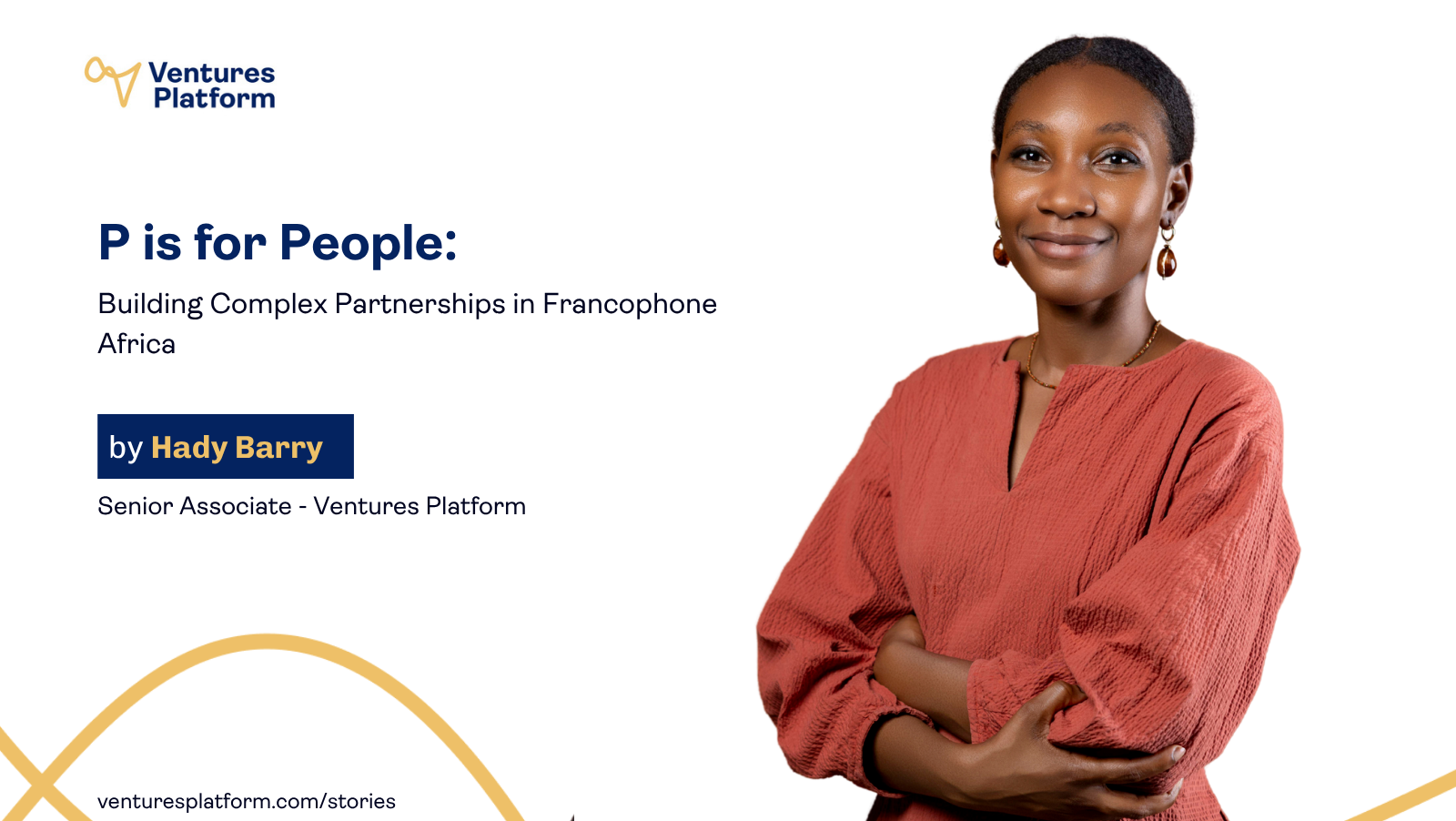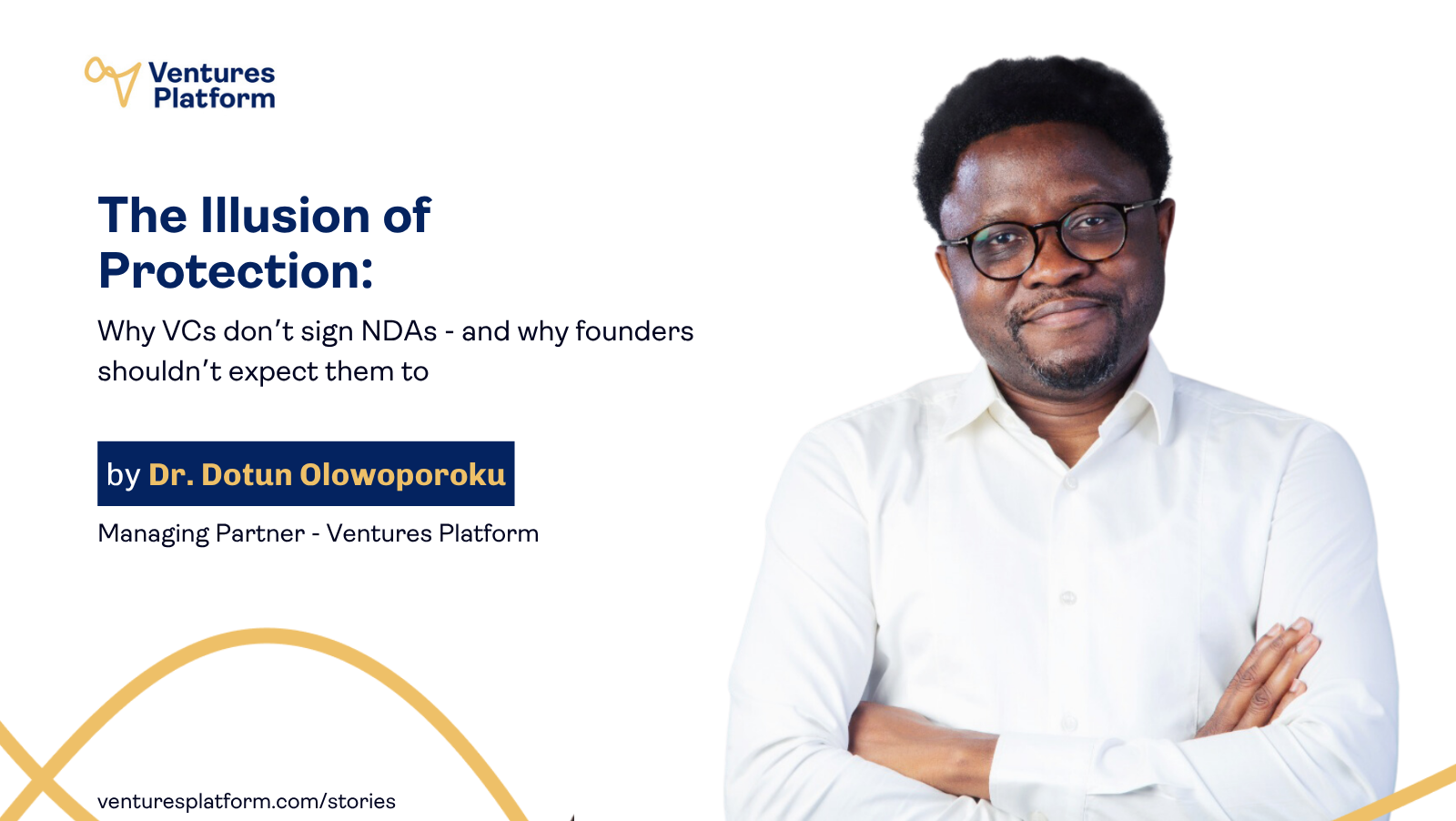P is for People: Building Complex Partnerships in Francophone Africa

Over the past seven years, I have experienced both the pleasure and the frustration of forging partnerships for two fast-growing startups expanding across Africa, with a particular focus on Francophone markets. That journey has taught me a lesson I now consider foundational: every successful partnership, no matter how complex or transactional it appears on the surface, ultimately depends on people. Deals are unlocked through relationships - the ability to identify, build, deepen, and activate the right network of human connections.
What follows are three lessons I hold on to, most relevant for founders seeking to scale through B2B or B2G partnerships, especially those seeking to do business in the Francophone region.
1. Map the Ecosystem or Value Chain Thoroughly
In Francophone Africa, markets are often concentrated around a handful of powerful players - sometimes near-monopolies. Before deciding on a point of entry, you need to understand how your target partner interacts, if at all, with other players in their sector. Who are the key actors? How do they relate to one another? Where do they sit in the value chain? What are they trying to achieve?
Some of these can be researched at a desk, but the most valuable insights come from direct conversations - spending time speaking with people within and across the ecosystem of interest. Over time, I’ve learned to approach this process as a connector. Each interaction is an opportunity not only to learn but also to create value by linking people. When someone shares a need, I instinctively scan my mental map for who might help and offer an introduction. The gain is rarely immediate, but it positions me as a connector, and people tend to reciprocate when I need access down the line.
Recently, this approach paid off when an international funder mentioned an interest in Côte d’Ivoire. Days later, a local ecosystem actor expressed a need for partners. I connected them. The link had no direct benefit for me, but it strengthened my reputation as someone who builds bridges. Such gestures sustain a virtuous cycle of information and access.
An often-overlooked source of intelligence comes from consultants engaged by large enterprises. They can provide invaluable guidance on positioning, the right arguments to make, and even the identity of true decision-makers. Ultimately, mapping is not just about identifying who to reach, but also about learning who influences them and cultivating relationships with those trusted insiders.
2. Identify and Leverage Champions
No matter how compelling the product or solution, deals rarely move forward without champions. Champions are the insiders or allies who see your value, advocate on your behalf, and help you navigate organizational or regulatory mazes.
I once led a deal that required securing authorization to operate in a country’s airspace. For months, I had navigated the health ecosystem, confident I understood the key players. What I had overlooked, however, was the regulatory side — a blind spot that became critical.
In a conversation with the Country Director of a health NGO, I discovered that only one entity had ever successfully obtained such authorization. She graciously introduced me to their country head. As it happened, he was an aviation enthusiast. The first few times we met, I made no asks. We bonded over a shared fascination with aviation and the potential of applying innovative technology to strengthen Africa’s health supply chains. That connection laid the groundwork for trust. Eventually, he became a pivotal champion, opening doors and advising on how to frame our case.
With his support, I brokered an agreement with the national security agency that guaranteed us airspace access. That breakthrough instantly changed the tenor of the deal. Conversations that had been stalling with the Ministry of Health and key donors suddenly regained urgency, because the single greatest barrier, regulatory authorization, was no longer in doubt.
Champions can be external, but often they are internal and not necessarily in the C-suite. In technology-driven sectors, a mid-level technical lead may recognize the innovation’s potential before executives do. Spotting these individuals requires time, trust, and authentic engagement. Beyond the boardroom, I’ve built rapport over padel matches, Zumba classes, and weekend brunches. Most importantly, I have genuinely enjoyed all of these interactions. These informal moments remind us that we are dealing with people first, institutions second. Deals progress most naturally when rooted in genuine human connection. The question shifts from whether a deal will happen to how to set its terms so all parties could walk away happy: du donnant-donnant.
3. Don’t Mistake Politeness or Engagement for Progress
In Francophone Africa, politeness is cultural currency. Courteous words can mask hesitation, skepticism, or outright refusal. A client may never say “no” directly - instead, they prolong meetings, delegate to junior staff, or delay responses. Six months later, you may realize you have been circling without real traction.
The key is to assess engagement by its quality: responsiveness, access, and the involvement of senior decision-makers. When politeness becomes a smokescreen, it is time to lean on champions or influential contacts to cut through the fog.
At one of the startups I worked with, I spent two years securing a direct integration with a large telco - one of only three such partnerships today. For months, we were caught in polite but stagnant conversations. By building rapport with the team managing our account - outside the formality of boardrooms - I finally uncovered the real issue: the telco doubted our ability to deliver volumes, shaped by a failed prior integration.
With that insight, I shifted strategy. I worked with a trusted champion to secure a meeting with the CEO, reframed our pitch around diaspora activation, and brought in a client to share firsthand impact. That credibility changed perceptions. Two years after starting, the deal closed.
The lesson was clear: politeness is not conviction. Progress is measured in responsiveness, senior access, and concrete next steps. When those stall, you must probe deeper, activate champions, and test whether conversations are truly advancing — or simply circling politely.
_____
Relationships as Infrastructure
Recently, I came across the Kula exchange, a ceremonial system that sustained trade among the Massim people of Papua New Guinea. Instead of money, the exchange revolved around two symbolic objects: the soulava (a red shell necklace) and the mwali (a white shell armband). The soulava moved clockwise from island to island, while the mwali traveled counter-clockwise.
The Kula was governed by obligation. Chiefs who received these objects were never meant to keep them — each item had to be passed on, carrying with it the prestige of everyone who had held it before. To participate was to join a chain of relationships. Because the objects kept moving, partners kept returning to one another, reinforcing bonds of trust that unlocked safe passage, hospitality, and eventually trade.
The parallel to modern partnership-building is clear. Just as the Kula relied on reciprocity and continuity, today’s complex deals depend on mapping stakeholders, nurturing champions, and reading signals with care.
At the heart of it all lies the same truth: relationships are the bedrock of every successful partnership.
About Hady Barry
Hady Barry is a Senior Investment Associate at Ventures Platform, where she focuses on identifying and supporting early-stage ventures shaping Africa's future - particularly in Francophone markets. She is especially passionate about supporting visionary entrepreneurs building a prosperous low-carbon future on the continent and beyond.
Hady brings over a decade of experience across fintech, global health, and social impact. Before joining Ventures Platform she led business development in Francophone Africa for Taptap Send, where the partnerships she brokered drove a majority of the company's profitability in the region. She has also held expansion roles at Zipline, negotiating national-level partnerships and designing systems to expand access to essential health commodities.
She holds an MBA from UC Berkeley's Haas School of Business and a BSFS in International Economics from Georgetown University's School of Foreign Service. Based between Abidjan and Dakar, Hady is driven by a deep commitment to shaping equitable and inclusive futures.
.png)
.svg)


